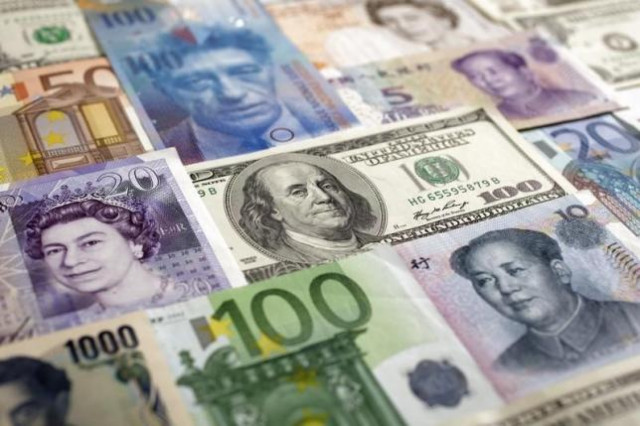Thanks to Brexit: Pound sterling nears euro parity
Improving growth prospects in eurozone may further strengthen the euro

PHOTO: REUTERS
Sterling went into free-fall after Britain voted in a shock referendum last year to leave the European Union, sparking fears over the nation's economic outlook.
The pound was trading at approximately 1.3072 euros as voters headed to the polls on June 23, 2016. This week, sterling stood at about 1.0850 euros, a dramatic 17% slump since the referendum. "There is certainly a possibility for euro/pound to hit parity," said analyst Fawad Razaqzada at trading firm Forex.com.
The British currency had clawed back some of its immediate losses as investor nerves subsided after the vote.
But in recent months the economic growth prospects in the 19-nation eurozone have improved, intensifying speculation the European Central Bank will wind down crisis-era stimulus measures.
As a result, the European single currency has been in the ascendancy, scaling this week a 2.5-year pinnacle against the dollar. The pound has taken a heavy knock from the euro's comparative strength.
"The pound's sharp drop since April was chiefly due to the political turmoil in the UK and the fact the Bank of England refused to turn hawkish despite an uptick in inflation," Razaqzada said.
"At the same time, economic data in the eurozone started to improve, which aided the euro's recovery."
Published in The Express Tribune, September 2nd, 2017.
Like Business on Facebook, follow @TribuneBiz on Twitter to stay informed and join in the conversation.


















COMMENTS
Comments are moderated and generally will be posted if they are on-topic and not abusive.
For more information, please see our Comments FAQ